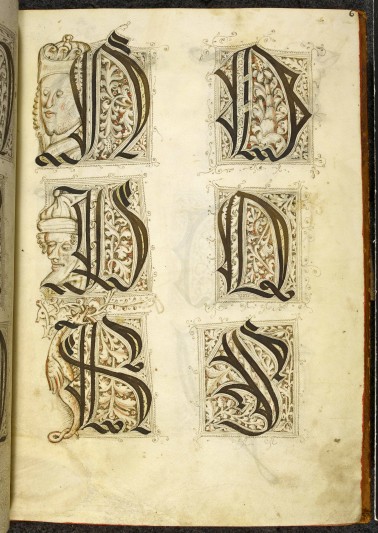The archive of the Enys family of St Gluvias, Penryn, on deposit at Cornwall Record Office for over 40 years, comprises 80 boxes of papers and c.
Search FNL grants since 1931
Publications and ephemera relating to Stefan Lorant (1901- 97), the pioneering Hungarian-American filmmaker, photojournalist, and author, collected by Michael Hallett, Lorant's biographer, between 1990 and 2007; and Michael Hallett's own collections relating to other photojournalists ac
Over 500 letters received by John Jefferys, lawyer and Town Clerk of Bath, 1760-1800. As well as letters dealing with Corporation business, there many letters from his private clients engaged in the financing of building and development projects in Bath, most notably William Pulteney
A catalogue of the antiquities and ethnological remains assembled by the Jesuit scholar Athanasius Kircher, the foundation of the Jesuit Roman College's famous Museum.
An imperfect copy of an unidentified early 16th cent. edition of the Decretales of Gregory IX. Sixteen formerly blank leaves at the beginning of the volume contain Welsh poetry added by 'Lewis Johnes', including an early cywydd attributed to Siôn Tudur (c.1522-1602)
A previously unknown archive of the late Poet Laureate, comprising over 200 files and boxes of manuscripts, letters and diaries, including material relating to Birthday Letters, published in 1998, Hughes's collection of poems about his relationship with his first wife, Sylvia Plath.
A hitherto unknown late medieval manuscript on vellum containing fourteen different types of decorative alphabets, ranging from simple letters in Gothic script to large coloured anthropomorphic initials, and two sets of different types of borders.
The oldest surviving English Roll of Arms, containing 324 coats of arms arranged in 54 rows, painted on a green background, six shields to a line, representing about one-quarter of the English baronage at the time of its composition. The knight's name is written above most of the shields.
Originally composed in 1807-8, The White Doe tells the story of the Rising of the North against Elizabeth I in 1569. The present copy is the first edition, quarto,1815, in its original boards, with annotations in the hand of Mary Wordsworth for its publication in Miscellaneous Poems, 1820.
Family and business records of John Shaw and Sons, woollen manufacturers, of Brookroyd Mills, Stainland.
